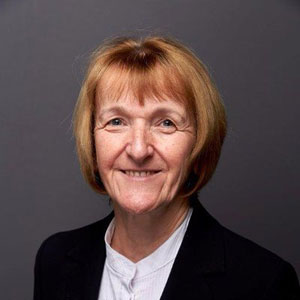More than 1000 of the region’s most severely injured casualties have passed through the front doors of the QEHB since it went live as a Major Trauma Centre one year ago.
The hospital’s specialist teams have treated the most complex injuries suffered by victims including massive internal bleeding, brain injury, multiple fractures and cardiac failure.
Without the new system it is possible that many of these patients would not have survived while others may not have realised their full potential for rehabilitation and recovery without the early interventions they received.
The QEHB is at the heart of the Birmingham, Black Country, Hereford and Worcestershire Trauma Network.
In total, between 26 March 2012 and March this year, a total of 1073 patients arrived at the hospital due to its Major Trauma Centre status. These were patients who triggered the West Midlands Ambulance Service MTC criteria and accounted for 80% of all the region’s major trauma casualties.
Some 40% of these patients arrived in the Emergency Department following road traffic accidents.
In the past year, 80 -90% of major trauma patients arrived by land ambulance and 10-20% by air ambulance. On average, their length of stay in the hospital was 16 days.
Around half of major trauma patients who are admitted will go straight to a ward, about 10% will go to directly to theatres, a further 20% will go to Critical Care. About 20% will go home.
Mondays and Tuesdays see the largest number of patients arriving, between 08:00 and 17:00. Conversely, there has been an increase in overnight activity (20:00-08:00) over the weekends, particularly on Friday and Saturday nights.
Professor Sir Keith Porter, the UK’s only Professor of Traumatology and MTC Clinical Lead said: “No department within the hospital associated with the care of a trauma patient will have escaped the impact of the MTC status.
“What is clear is that the hard work, inter-specialty and department support has made its function so successful. It is relatively early days and the system is very much a system in evolution but we know it is already making a real difference to people’s lives.”
Randeep Kular, MTC Project Manager, explained: “A key part of the MTC role is that we often have several specialities involved in polytrauma. That has required a service redesign both internally and externally and a new way of working across all divisions.
“An extremely positive improvement is that therapists provide an initial rehabilitation prescription within the first 24/48 hours of an MTC patient arriving. This guides their initial treatment but also their ongoing care, including information necessary for subsequent receiving hospitals and external agencies.
“Our Consultant Trauma Clinicians include members of the military, ensuring their learning is shared across the civilian patient pathway, making our MTC quite unique.”
The network
QEHB is one of four Major Trauma Centres in the region, the others being:
- University of North Staffordshire (Stoke)
- University Hospital Coventry & Warwickshire (Coventry) as adult MTCs and
- Birmingham Children’s Hospital as a solitary children’s MTC in the region.
The MTCs are supported by a number of trauma units and specialist rehabilitation units. The Birmingham, Black Country, Hereford and Worcestershire Trauma Network includes the following hospitals:
- Hereford Hospital
- Worcester Hospital
- Alexandra Hospital, Redditch
- Russells Hall Hospital
- New Cross Hospital, Wolverhampton
- Walsall Manor Hospital
- Sandwell Hospital
- City Hospital
- Heartlands Hospital
Benefits to patients who are cared for within a trauma network include:
- Improved survival rates by 20%
- Speedier recovery for patients
- Severity of patient disability reduced
- Patients able to live more independently following their recovery
- More patients able to return to work
- Specialist major trauma care available 24 hours a day and 7 days a week
- Specialised staff, services and facilities available on one site
- Access to specialised rehabilitation services
- Quality Improvement programmes ensuring continuous improvement of high quality care




